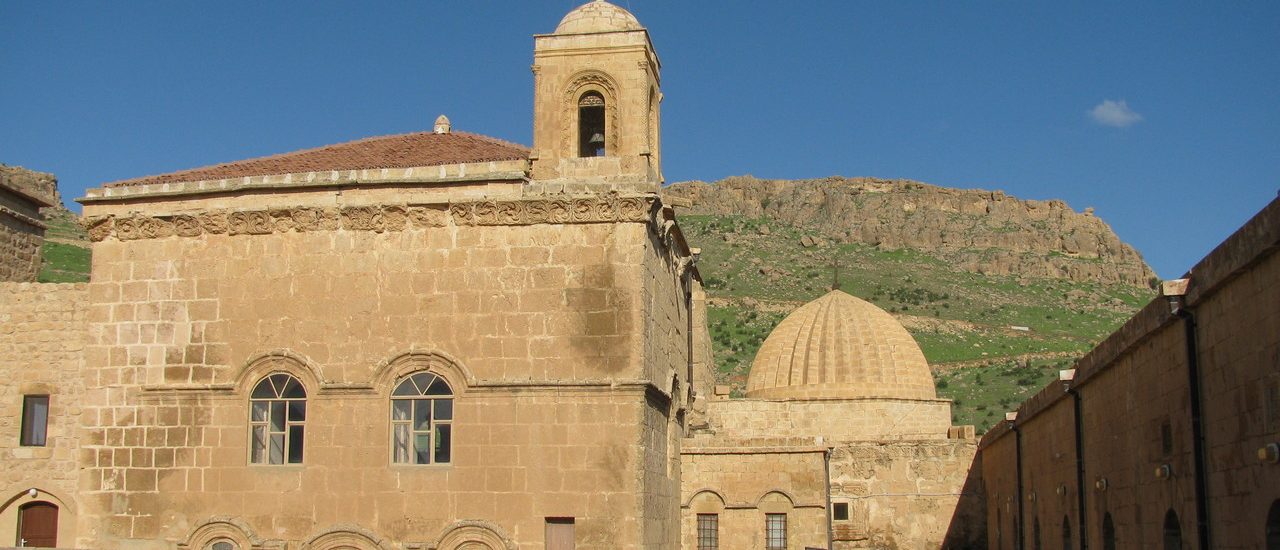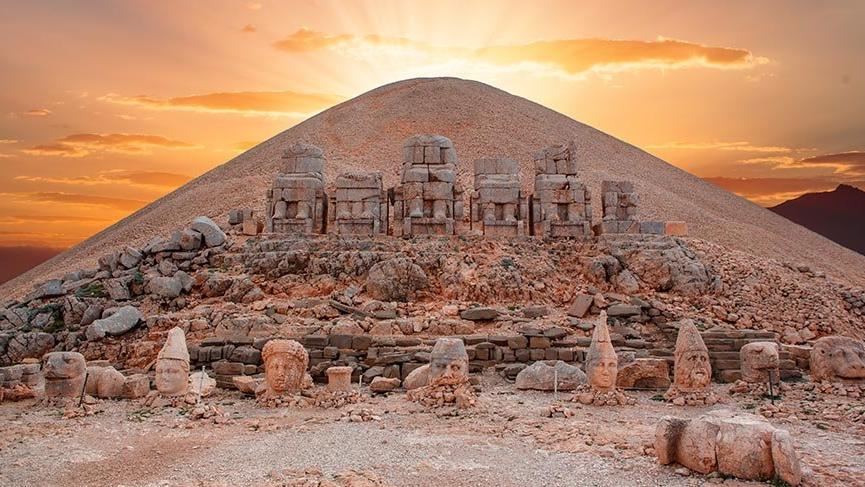Tur Abdin Tourism & Travel Agency

Welcome to Turkey & Summary of the history about Turkey
In the history the region of Turkey has always been present due to the fact that the ancient Anatolia is linked to the name of Mesopotamia. The empires of the Assyrians, Persians, Macedonians, Romans, Byzantines, The history spreads with intensity almost unique in the world in the ancient times of the great empires of the Assyrians, Hittites, Persians and of the Hellenistic Ottomans and other populations, have helped to give the region the title “cradle of civilization”. In this region, the story spreads with intensity almost unique in the world in the ancient times of the great empires of the Assyrians, Hittites, Persians and of the Hellenistic period.
Then came the Byzantine Empire, the Ottoman Empire and was established in 1923 the new Turkish Republic by Mustafa Kemal.
The strategic position of Turkey has allowed all the ancient civilizations to settle in the fertile river valleys on the Anatolian and the Mesopotamian coast. Today is the crossroads between Europe and the Middle East.
The Asiatic part of Turkey extends to Anatolia, overlooking the north by the Black Sea and the Sea of Marmara, the Aegean Sea to the west, south to the Mediterranean Sea. The European part of the country borders: West with Greece (206 km) and with Bulgaria (240 km). The Anatolian region extends to the East with Georgia (252 km), with Armenia (268 km) and with Iran (499 km). In the South-East with Iraq (352 km) to the south with Syria (822 km). Turkey has a long history of maritime border with Greece in the Aegean Sea, almost close to the same coasts of Anatolia. In addition, the Black Sea separates Turkey from Romania, Ukraine and Russia. A long arm of the Mediterranean Sea separating Turkey from the island of Cyprus.
Turkish land is made of many contrasts not only cultural, but mostly landscapes; the glaciers of Mount Ararat, on which many adventures explorers comes from all over the world in search to the Ark of Noah. The golden beaches of the tourist areas will make you experience the real holiday and you will enjoy the hospitality of the peoples living in Turkey, which they are very friendly to all travelers comes from all over the world.
HYDROGRAPHY
The Tigris River and the Euphrates River crossing the eastern regions of Turkey and flow into the Persian Gulf. In Thrace, the Maritsa river marks the border between Greece and Turkey. Not all rivers that are found in Turkey are navigable. The Kizilirmak River which flows into the Black Sea, as the Sakarya. The Büyük Menderes (Great Menderes) flows from Anatolia to the western Aegean sea with a circuitous path so as to have given rise to the term “Meander” to indicate the deep bend in a river.
Lake Van is the largest in Turkey, with its salty waters and bathing with an area of 3763 km ².
The Euphrates River
The Euphrates (in Aramaic Afrat, Frat in Kurdish, Arabic al-Furat, in turkish Firat Euphrates in greek), with 2760 km of course is the longest in Western Asia, and along the Tigris bounds the Anatolian and Mesopotamian region cradle of ancient civilizations, the Arameans, the Assyrians, the Babylonians, the Syrians today, Kurds and Turks.
The Euphrates in Turkey was born from the confluence of two rivers, the Kara (called western Euphrates) and Murat (known as the Eastern Euphrates). Kara comes from the highlands of Armenia in Turkish territory north of Erzurum, while Murat, comes from the south-west of Mount Ararat north of Lake Van. The Euphrates basin is exploited for its large scope in Turkey, with the hydroelectric power plant Büyükçay and then in Syria, where it forms the artificial lake called Assad. Many countless people crossed it (the Assyrians, Babylonians, Hittites, Medies, Kassites, etc..). Under Nebuchadnezzar of Assyria, in the sixth century. B. C., the river Euphrates was the focal point of the empire, its long and tortuous course divided into many arms and marshy swamps. It was in the past a barrier of division among peoples and a deterrent to many invasions. It was also the border between the Satrapies of Alchemenidi, prevented contact between the Parts and the Hellenic civilization and served as the border between the Roman Empire and the Byzantine Empire.
The Tigris River
The Tigris River is in the West of Asia (1950 km) with a catchment area of around 375,000 km 2.
Born in western Turkey, descends from Mount Taurus, runs through the south-eastern and south-east of Anatolia, demarcates the border with Syria and flowing parallel to the Euphrates and enters in Iraq.
So its joins the latter forming the Shatt al Arab and empties into the Persian Gulf.

OROGRAHY
Turkey is occupied by mountain ranges that run from east to west: the Pontic Mountains and the Taurus Mountains. The maximum altitude is reached by Mount Ararat (5165 m), where it says that it has stopped the Ark of Noah. Other mountains are the Elmadag, the Bozdaglar and the
range of Abant mountain. Between the peaks of the country there is also the volcano of Erciyes mountain, the crater of Nemrut Dagi and Suphan mountains along the lake of Van. In addition, we have the famous Mount of Nemrut in Adiyaman with its splendid monuments on the top of its summit.
CLIMATE
The coastal areas of the Mediterranean and Aegean Sea have warm summers and mild and rainy winters.
In Istanbul, the temperature average is about 0 ° C from December to February and about 23 ° C from March to June. Between July and September of up to about 30 ° C. The central plateau has a continental climate with hotter summers and colder winters. Along the Black Sea, the climate is mild and humid, while in southeastern eastern registering the highest summer temperatures in Turkey, above 35 ° C in the summer time.
THE ECONOMIC ACTIVITY
The Turkish economy between the years 80/90 was slowing down, but in recent years has had a significant expansion. Nowadays Turkey has become an industrialized nation.
CURRENCY
Turkish Lira (TL)
LANGUAGE
Official language is Turkish, but there are several minorities linguistic.
CAPITAL
Istanbul is the most important city for the trade industry. Ankara is the capital of Turkey is the second largest commercial and industrial city. Located in the center of the Anatolian peninsula, as well as an important crossroads of trade, the rail system and highway of Turkish.
CITY
In addition to the administrative capital Ankara, Istanbul capital of the history and the culture, there are also important centers of the country Izmir, Adana, Konya, Izmit, Antalya, Mersin, Antakya, Gaziantep, Kayseri, Urfa, Adiyaman, Diyarbakir, Mardin, Van, Erzurum and Trabzon etc.
MONUMENTS
The ruins of Ephesus, near Selcuk the Temple of Artemis, one of the seven wonders of the world.
Near Antalya we find the site of Aspendos, is one of the best preserved Roman theaters in the world.
TYPICAL DISH
The well-known the mutton, or chicken kebab, without forgetting the famous dessert Baklava and other local specialties.
PARTICULARITY
Ramazan (Ramadan in other Muslim countries), the period of fasting that Muslims are required to observe for a month. After sunset you can redo widely practiced by abstinence during day light hours.
The end of Ramazan is celebrated with a feast of caramel, because it turns into a riot of sweets.
For 4 days banks, offices and shops are closed, only the confectioners make three shifts.
THE WAY OF COMMUNICATON
Turkey has a rail network of only 8700 km. Is the most developed road network, comprising an artery that comes from Istanbul to the border with Iran going to Ankara and Erzurum. Intense traffic by the Sea, which has its center in the busiest ports of Istanbul, Izmir, Mersin and Cannakkale.
The head center of airports are in Istanbul, Ankara, Adana, Antalya and Izmir.
VOLTAGE
The electric current is 220 V.
INTERNATIONAL NETWORK
To call Turkey from Italy and the rest of Europe; prefix is +90
TRAVEL SAFE
For more information see links to travel safe: www.travevlsafe.com (Pf download the banner on the site)
WEATHER
To see the weather links: wwww.weather.com (P: F: download the banner for this site)





